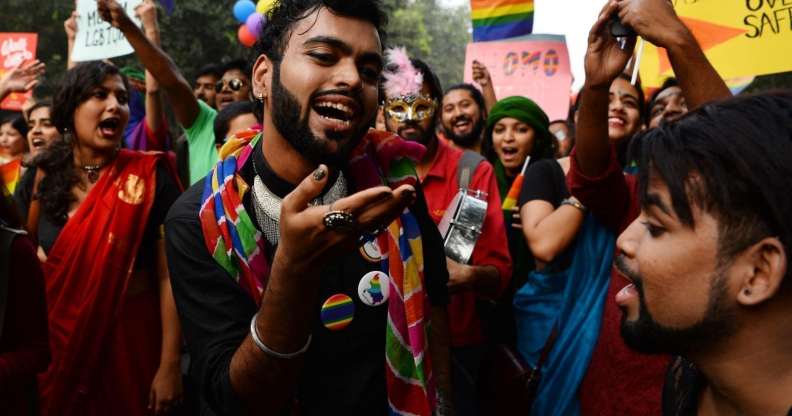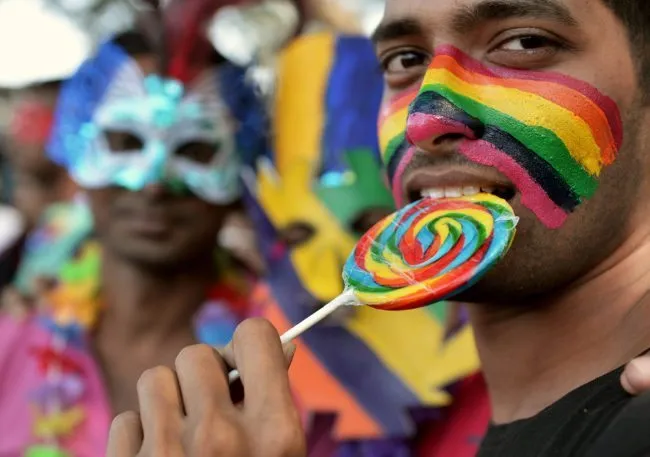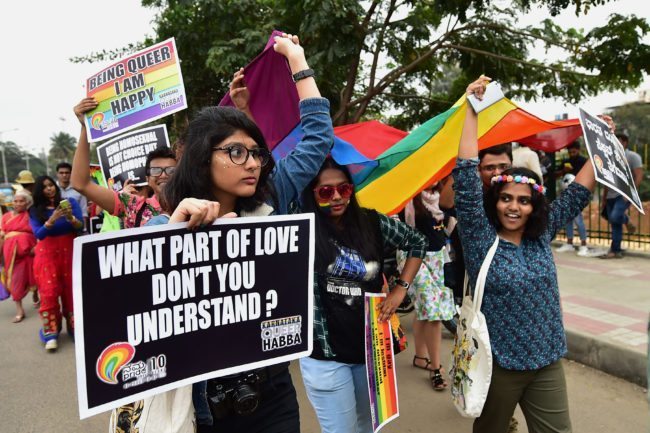Campaigner: ‘Legalising gay sex in India would threaten national security’

An LGBT pride parade in New Delhi in 2017 (SAJJAD HUSSAIN/AFP/Getty)
A campaigner in favour of India’s Section 337 – which criminalises so-called ‘unnatural’ sex – has said legalising gay sex would threaten national security.
India’s five-judge Supreme Court is currently hearing a landmark case relating to the penal code, and there are positive signs that the colonial-era restriction may be struck down.
Suresh Kumar Koushal, a campaigner in favour of keeping the anti-LGBT legislation, made the barmy claim that the law was needed to protect national security – because otherwise Indian soldiers would have sex with each other on the job.
He told judges: “Fear of Section 337 restrains them from performing same-sex intercourse.
If the provision is decriminalised it will not only have an adverse effect on Indian armed forces, but could endanger national security.”

(Photo credit should read Manjunath Kiran/AFP/Getty Images)
He added that repealing the anti-LGBT law would be like opening Pandora’s Box, because it would lead to additional cases on inheritance and property disputes, reported the Times of India.
The Indian Government said this week it would leave it up to the courts to decide whether Section 337 should be repealed.
Appearing in court, the Additional Solicitor General Tushar Mehta said: “So far as the constitutional validity [of] Section 377 to the extent it applies to ‘consensual acts of adults in private’ is concerned, the Union of India would leave the said question to the wisdom of this Court.”
India’s ruling Bharatiya Janata party is opposed to moves to decriminalise same-sex intercourse, with its MPs voting down or blocking moves to repeal the legislation through Parliament.
The Home Secretary Rajnath Singh has previously said that the Government supported Section 337 because “we believe that homosexuality is [an] unnatural act that cannot be supported.”

Gay sex was criminalised during the British colonial era (Getty)
However, the decision to let the courts decide on the code’s legality suggests that it will not resist if the law is repealed.
The law has been widely used to clamp down on India’s LGBT community and activists have been campaigning for its repeal since a court ruling in 2013 brought it back into effect.
Gay sex is punishable with life imprisonment in the country.
It has been illegal in India since Section 377 of an 1861 law – introduced under British colonial rule – banned sexual activity “against the order of nature,” including with another man or woman.

